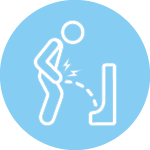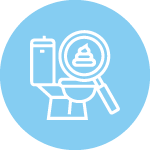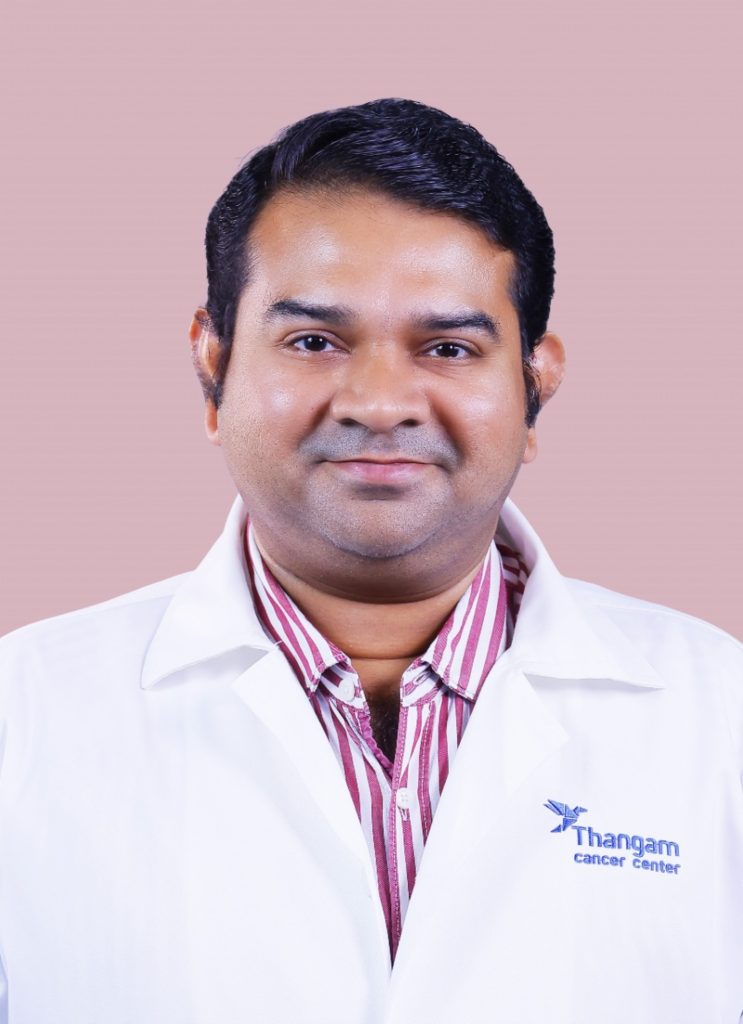Pancreatic Cancer

What is Pancreatic Cancer?
Pancreatic cancer occurs when malignant cells develop in the tissues of the pancreas an important gland located behind the stomach and near the upper portion of the small intestine (duodenum). The pancreas has two key functions: the exocrine gland helps in digestion by producing enzymes, and the endocrine gland regulates blood sugar levels by producing hormones like insulin.
Pancreatic cancer is more common in men and is often diagnosed in advanced stages due to its subtle symptoms.
Causes and Risk Factors for Pancreatic Cancer
Though the exact cause is unclear, several risk factors increase the likelihood of developing pancreatic cancer:
- Smoking
- Type 2 Diabetes
- Chronic Pancreatitis
- Obesity and Poor Diet
- Genetic Syndromes – BRCA2, Lynch Syndrome, FAMMM syndrome
- Family History of pancreatic or related cancers
- Age – Most common in people over 60

Symptoms of Pancreatic Cancer
Symptoms may not appear until the disease is advanced. When they do, they may include:

Persistent abdominal pain radiating to the back

Unexplained weight loss or loss of appetite

Yellowing of the skin and eyes (jaundice)

New-onset diabetes or worsening blood sugar control

Dark urine

Clay-colored stools

Severe itching of the skin

General fatigue and weakness
If you notice any of these symptoms for more than a few weeks, consult our specialists at Thangam Hospital immediately.

Preventing Pancreatic Cancer
While there’s no guaranteed way to prevent pancreatic cancer, the following steps may help reduce your risk:
- Quit smoking
- Maintain a healthy weight and active lifestyle
- Eat a balanced diet rich in fruits, vegetables, and whole grains
- Consider genetic counseling if you have a family history of the disease
Diagnostic Tests for Pancreatic Cancer
At Thangam Hospital, we use advanced imaging and biopsy techniques for accurate diagnosis:
Physical Examination
Detailed review of symptoms and physical findings
Pancreatic Protocol CT Scan
Specialized CT scan for tumour staging
MRI Scan
To assess tumour involvement with nearby vessels
PET-CT Scan
Helps detect spread to other organs like the liver or lungs
Endoscopic Ultrasound (EUS)-Guided Biopsy
Minimally invasive tissue sampling
Ultrasound-Guided FNAC
Needle biopsy under imaging guidance

Treatment Options for Pancreatic Cancer
Treatment depends on cancer type, location, stage, and patient condition. We offer a comprehensive, multidisciplinary approach:
- Whipple’s Procedure (Pancreaticoduodenectomy) – Removal of the pancreatic head, duodenum, gallbladder, bile duct, and part of the stomach
- Pylorus-Preserving Pancreaticoduodenectomy – Similar to Whipple’s but preserves the stomach’s pylorus
- Distal Pancreatectomy with/without Splenectomy – Used when cancer affects the tail or body of the pancreas
- Total Pancreatectomy – Complete removal of the pancreas; patients require lifelong insulin and enzyme support
- Bypass Surgeries – Gastrojejunostomy or hepaticojejunostomy in advanced cases to relieve symptoms and improve nutrition
- Chemotherapy is administered through injections or oral tablets, based on disease stage.
- Modern chemotherapy regimens have minimized side effects and are crucial in controlling circulating cancer cells.
- Adjuvant Chemotherapy
- Given after surgery, usually 6 cycles, each lasting 2–3 weeks.
- Neoadjuvant Chemotherapy
- Given before surgery, usually 3 cycles (each 3 weeks).
- Often followed by another 3 cycles post-surgery as adjuvant therapy.
- Combines radiation therapy with chemotherapy
- Especially helpful in locally advanced cancers or when surgery is not feasible
- Can be used alone or with chemotherapy
- Targets specific tumour sites to shrink or eliminate cancerous tissue
- Drugs like Trastuzumab may be used in HER2-positive pancreatic cancers
- Focuses on specific proteins or mutations driving cancer growth
- Boosts the body’s natural immune response to fight cancer
- Used in certain advanced-stage or genetic mutation-related cases






